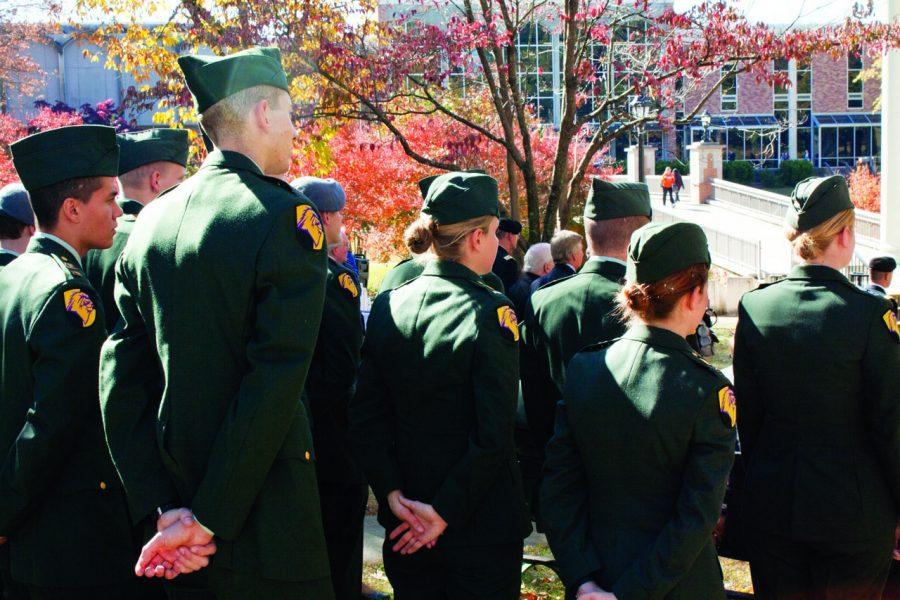War in Iraq unlikely to end this year
March 24, 2011
It is becoming more unlikely that the U.S. military will pull out of Iraq according to the scheduled withdraw date on Dec. 2011, according to the Christian Science Monitor.
The War in Iraq began early in the Bush administration, lasting for about nine years. The U.S. government has scheduled the date of the military’s departure by the end of the year, but overall it looks as if the United States’ presence is still required in Iraq in order to help the nation eventually succeed on its own.
Although the news sounds rather unfortunate to some, several members of UNA’s ROTC, including leading officers, understand the complexity of the government’s work on withdrawal from Iraq.
“A withdrawal plan is very complicated,” said Major Shawn Dalrymple. “It’s just not as simple as being there one day and leaving the next day.”
ROTC officers are more concerned with unfinished work in the country as far as helping the Iraqis live under a democratic government. Many provide several issues concerning Iraq being able to sustain itself in self-governing.
“We’re building a government, and that’s not a couple-year thing,” said William Moebes, former member of the ROTC program. “They [Iraqis] have not reached the level we’re achieving, and we shouldn’t abandon them.”
One aspect that Lt. Col. Snyder mentions about the war is that the role of the military has changed.
“Since September it has transitioned from Operation Iraqi Freedom to Operation New Dawn, so when it did it transitioned the role of the military,” said Snyder. “There is no longer a war in Iraq.”
“We’re no longer conducting offensive operations,” Dalrymple said. “Our main goal is to assist the Iraqi police and military.”
Another major issue in Iraq that the U.S. Military worries about is the division of tribes in Iraq that make it difficult to establish a set government in which everyone is equal the way Americans portray democracy.
“One of the biggest issues that they face is their inability to unite and have a church-and-state separated democracy,” said Captain Bart Brimhall, a veteran from Iraq. “Their political views are nested with their religious views.”
Difficulty arises still, as establishing a new government in Iraq will cause a major transition in power, which can harm those who already have power.
“Sheiks, they have their own area, families and tribes that they are responsible for,” Brimhall said, “So if the other guys start running the country then they lose their power, lose their land, lose that ability because they’re not recognized.”
As hard as the task sounds for the U.S. military, they are encouraged to see some improvement at work in Iraq.
“It’s not a completely stable country, but more stabilized than it was in 2008,” Snyder said.
So with the official withdraw date delayed, it is unknown to common officers as to how much longer the military will stay, other than guesses based upon what each soldier has seen.
“Setting the conditions so that we can withdraw from Iraq is about uniting the people by some means, which we have tried to do,” Brimhall said. “Honestly, I think that they are going to struggle for years to come.”
Whatever the government decides, the ROTC’s goal is to meet the demands of the nation and help train cadets to be prepared for anything.
“We structured the cadet command so they are ready to meet the challenges of the operation theater,” said Snyder. “We highlight what’s going on in the world and I ask, ‘What does it mean to me as an officer?’ which relates to platoon leaders.”
No matter how long it may take for Iraq to become self-sufficient, the United States Military shows patience and persistence in achieving its goal.
“It’s definitely hard on families, and I would like it if we were not in a war, but it’s where we’re at,” said Omar Sharif, a member of the ROTC and veteran from Iraq. “We’ve invested so much and I would really hate for us just to take a huge withdraw and see all that go to waste.”












